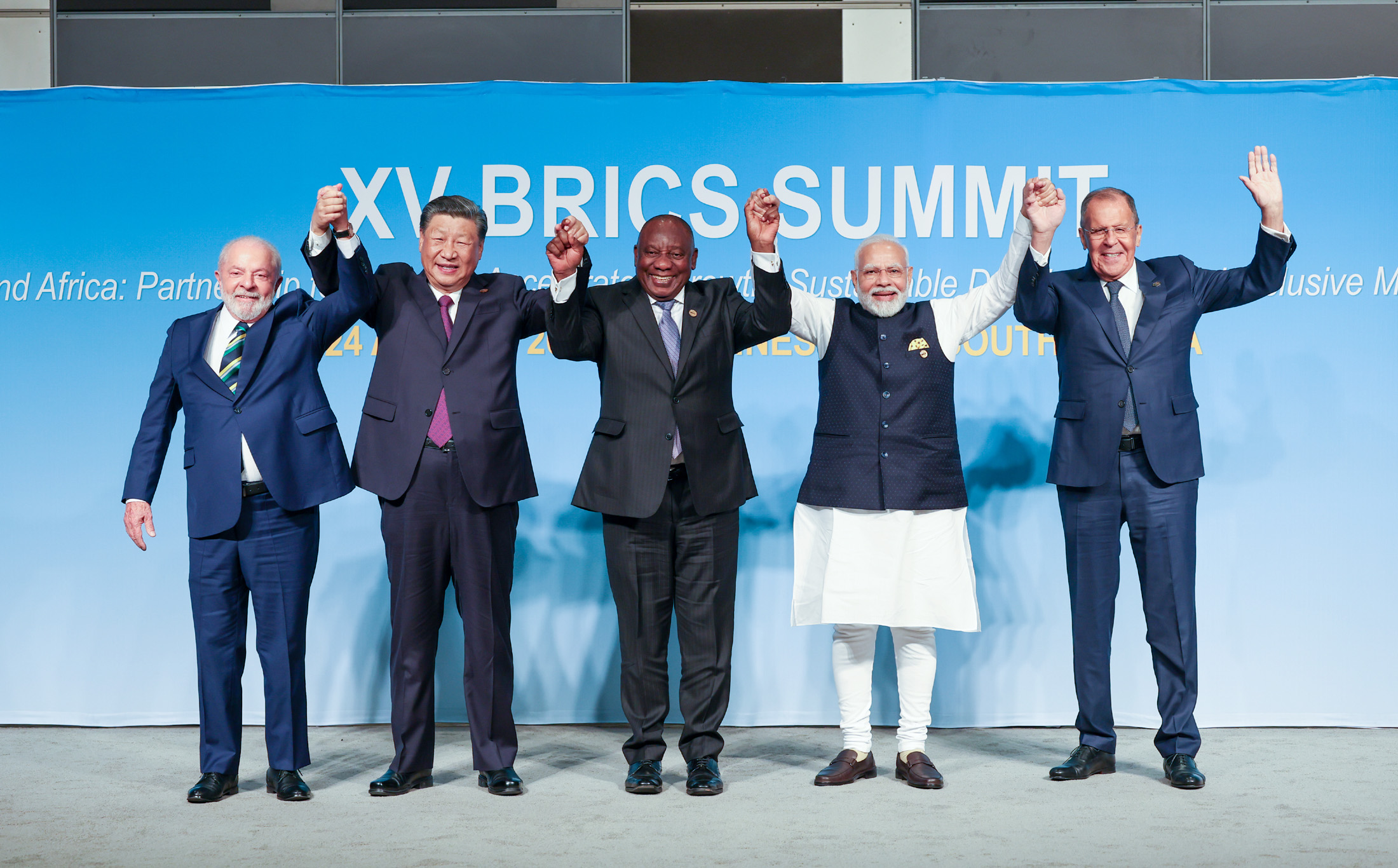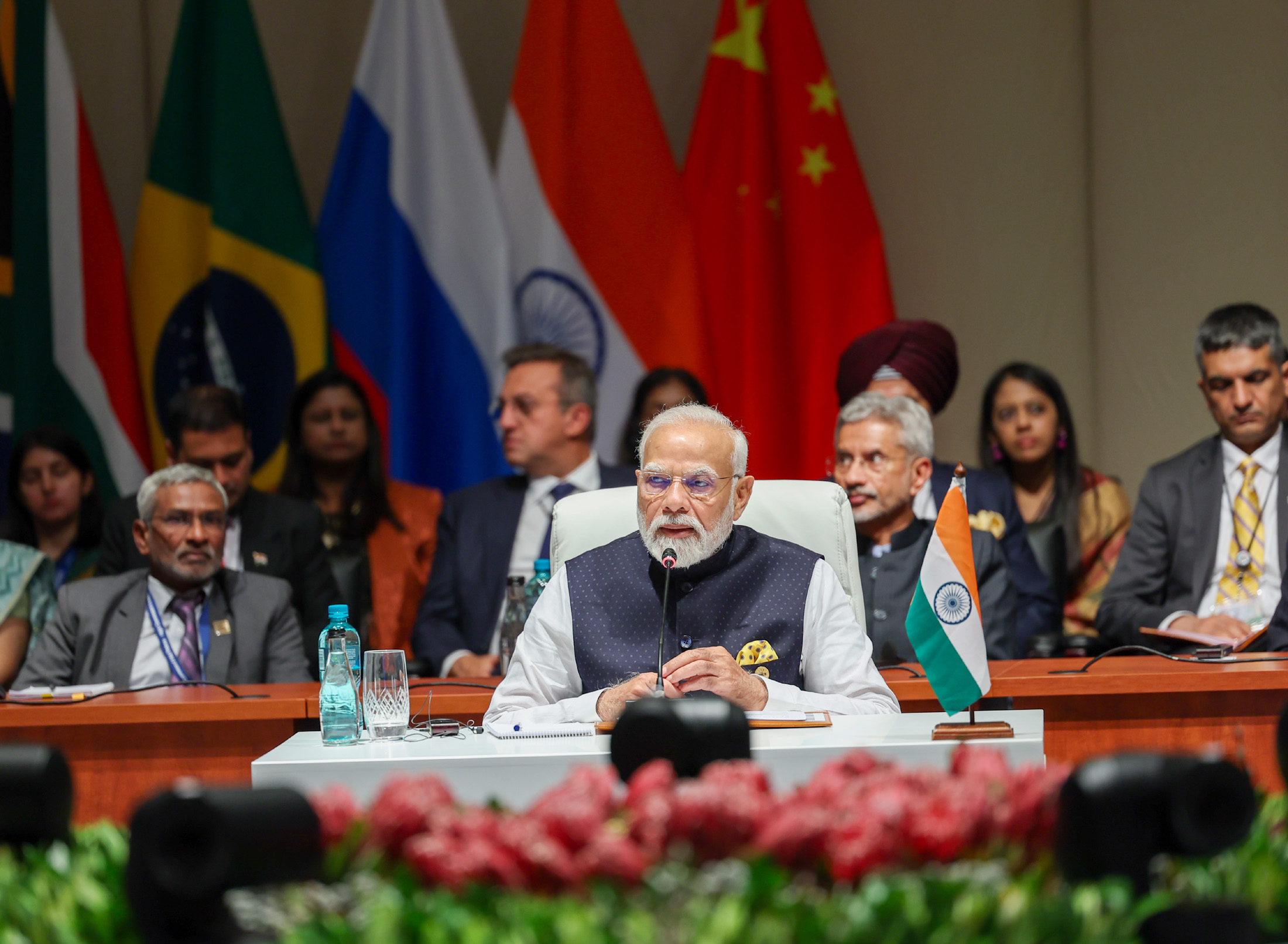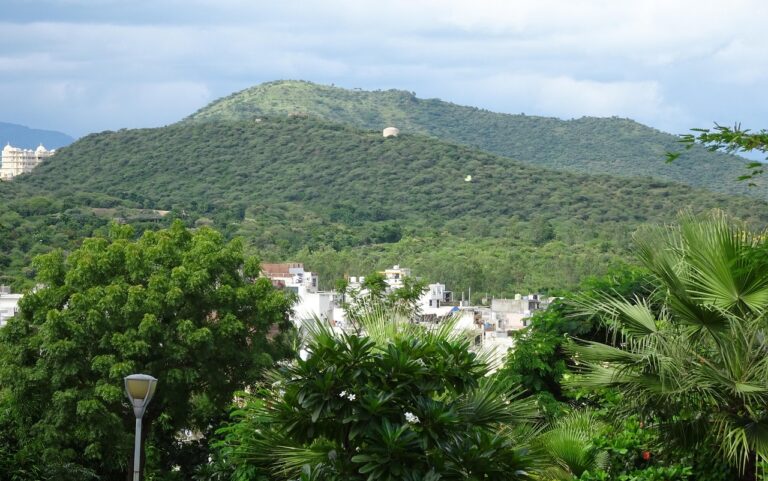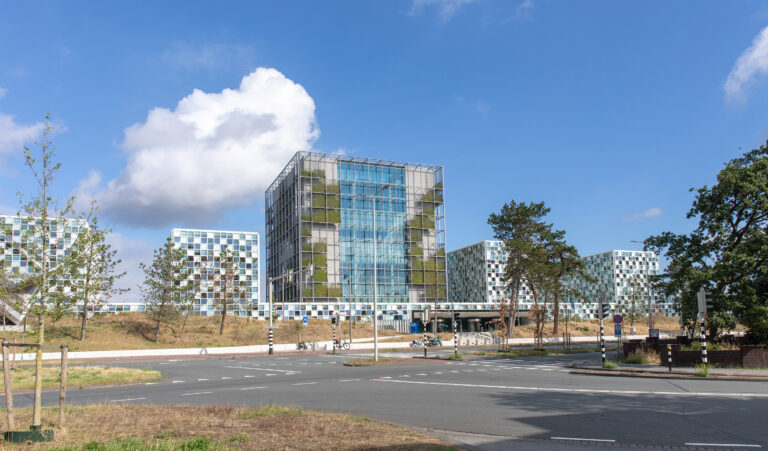
China wants BRICS members to help reform global governance to make it more equitable
Johannesburg: Extending his support to the proposed expansion of BRICS, Prime Minister Narendra Modi today sought the support of BRICS members to support India’s proposal to give permanent membership of G-20 to the African Union.
“I am sure all the BRICS partners are also together in the G20. And all will support our proposal,” Modi said today while addressing the open plenary session of the 15th BRICS Summit chaired by South African President Matamela Cyril Ramaphosa and attended by Chinese President Xi Jinping, Russian President Vladimir Putin (through Video Conferencing), and Brazilian President Lula Da Silva.
It may be mentioned that the theme of the 15th BRICS session is “BRICS and Africa: Partnership for Mutually Accelerated Growth, Sustainable Development and Inclusive Multilateralism.”
South African President Ramaphosa welcomed the ongoing engagement of BRICS countries with Africa in the spirit of partnership and mutual respect.
Modi noted that the countries of the Global South have been given special importance in BRICS, under the chairmanship of South Africa and welcomed the move. “This is not only the expectation of the present time, but also the need. India has given top priority to this topic under its G-20 presidency. Our effort is to move forward together with all the countries on the motto of “One Earth, One Family, One Future”. Giving special place to all these efforts in BRICS will increase the self-confidence of the countries of the Global South,” he said.
Brazilian President Lula Da Silva had already recommended on social media that Argentina should also be made a member of BRICS.

The Indian Prime Minister suggested that BRICS member nations should cooperate in the areas of Space, Education, Skill Development, Technology and ‘Big Cats’.
With regard to Space, he referred to the BRICS satellite constellation which is already in place and working. He further proposed the creation of a BRICS Space Exploration Consortium that can work for global good in areas like space research, and weather monitoring.
Addressing the Summit, the President of China, Xi Jinping, announced that China will set up a China-BRICS Science and Innovation Incubation Park for the New Era to support the deployment of innovation results. “Under the BRICS Remote Sensing Satellite Constellation mechanism, we will explore the establishment of a BRICS Global Remote Sensing Satellite Data and Application Cooperation Platform to provide data support for agriculture, ecological conservation and disaster reduction in various countries,” he said. China, he announced, will also work with all parties to jointly establish a BRICS Framework on Industrial Cooperation for Sustainable Development as a platform of industrial coordination and project cooperation in implementing the United Nations (U.N.) 2030 Agenda for Sustainable Development.
Modi said that technology will play an important role in making BRICS a future-ready organization. “We have to make our societies future-ready,” he stressed.
Modi also referred to DIKSHA – a Digital Infrastructure for Knowledge Sharing platform to provide education to the children of remote and rural areas in India; the 10,000 Atal tinkering labs set up to promote innovation among school students across India; Bhashini, an AI-based language platform being used in India to remove language barriers; the CoWIN platform created for vaccination; and India Stack, the Digital Public Infrastructure that he said was revolutionising public service delivery in India.
He said India would be happy to share all these platforms developed in India with BRICS partners. “Diversity is a great strength of India. The solution to any problem in India comes out at the test of this diversity. That’s why these solutions can be easily implemented in any corner of the world,” he added.
Besides, he suggested BRICS nations do skills mapping together to identify each other’s strengths. “Through this, we can complement each other in the journey of development,” he said.
Regarding big cats, Modi said that since a large number of big cats of different species are found in all the five countries of BRICS, under the International Big Cat Alliance, “we can make joint efforts for their protection”.
Moreover, referring to the BRICS countries having ecosystems of traditional medicine, he asked if the BRICS nations can together create a repository of traditional medicine.
Putin said, ” We are also committed to active involvement in implementing the agreements to set up a joint working group on nuclear medicine, and are interested in finding real-world applications for the BRICS Technical and Vocational Education and Training (TVET) Cooperation Alliance”.
Modi recounted that with initiatives like the BRICS satellite constellation, Vaccine R&D Centre, and mutual recognition of pharma products, BRICS nations were already bringing positive changes in the lives of common citizens of BRICS countries. He further pointed out that the BRICS New Development Bank was playing an important role in the development of the countries of the Global South, and that “we have created a financial safety net through the Contingency Reserve Arrangement”. He recalled that through initiatives like the Youth Summit, BRICS Games, and Think Tanks Council, “we are strengthening people-to-people ties between all countries”.
Jinping said, “We need to fully leverage the role of the New Development Bank, push forward reform of the international financial and monetary systems, and increase the representation and voice of developing countries”.
Russian President Putin pointed out that the partner countries were successfully implementing their Strategy for the BRICS Economic Partnership 2025. “In particular, they are strengthening five-sided cooperation in such areas as diversification of supply chains, de-dollarisation and the transition to national currencies in mutual transactions, digital economy, support for small and medium-sized businesses, and fair technology transfer. And of course, businesses are taking an active part in these processes,” he said.
Lula Da Silva said the creation of a currency for trade and investment transactions between BRICS members increases the payment options and reduces “our vulnerabilities”.
Modi also noted the” significant progress” made on some of the suggestions given by India to give a new direction to the BRICS agenda, such as the Railway Research Network; closer cooperation between MSMEs; the online BRICS database; and the Startup Forum.
Putin further suggested cooperation as part of the BRICS initiative to establish an international infrastructure network with a dedicated fund, which could be used to support and develop it. “Russia stands ready to share the experience it has and the best practices, including in digital transformation and using artificial intelligence,” he said.
Jinping said the world had entered a new period of turbulence and transformation. “It is undergoing major shifts, division and regrouping, leading to more uncertain, unstable and unpredictable developments,” he said and called upon the BRICS members to “help reform global governance to make it more just and equitable, and bring to the world more certainty, stability and positive energy”.
Jinping asserted that BRICS countries should keep to the direction of peaceful development, and consolidate the BRICS strategic partnership. He also called for increasing people-to-people exchanges and promoting mutual learning between civilizations. Without naming the United States, Jinping said international rules must be written and upheld jointly by all countries based on the purposes and principles of the U.N. Charter, rather than dictated by those with the strongest muscles or the loudest voice. “Ganging up to form exclusive groups and packaging their own rules as international norms are even more unacceptable,” he said. It may be mentioned that China has been critical of groups such as AUKUS, NATO, QUAD and the latest coming together of the US, Japan and South Korea.
“BRICS countries should practice true multilateralism, uphold the U.N.-centered international system, support and strengthen the WTO-centered multilateral trading system, and reject the attempt to create small circles or exclusive blocs,” he said.
Russian President Putin said the BRICS members were united in their commitment to shaping a multipolar world order with genuine justice, based on international law and in keeping with the key principles set forth in the UN Charter, including sovereignty and respecting the right of every nation to follow its own development model. “We oppose hegemonies of any kind and the exceptional status that some countries aspire to, as well as the new policy it entails, a policy of continued neo-colonialism,” he said. Taking a dig at the US-led G7, Putin pointed out that the five partner states of BRICS, with a total population exceeding 3 billion, account for a greater share in global GDP “than the so-called Group of Seven in terms of purchasing power parity”. He noted that over the past decade, BRICS countries doubled their investment in the global economy, and their total exports reached 20 per cent of the global total.
Earlier Brazilian President Lula Da Silva, while addressing the BRICS Business Forum on August 22, 2023, pointed out that the BRICS members had already surpassed the G7, and now accounted for 32% of the world GDP in purchasing power parity. He further referred to the projections that indicate that emerging and developing markets will present the highest growth rates in the coming years.
According to the International Monetary Fund, while growth in industrialized countries is expected to drop from 2.7% in 2022 to 1.4% in 2024, the expected growth for developing countries is 4% this year and the next. “This shows that the economy’s dynamism is in the Global South – and BRICS is its driving force,” Lula said.
Russia will assume the BRICS Chairmanship next year. Its motto will be Strengthening Multilateralism for Justice in Global Development and Security. “We intend to hold about 200 events on political, economic and social matters in over ten Russian cities,” Putin said. He meanwhile, continued to blame the West for the Russian aggression in Ukraine. “Let me point out that it was the attempts by some countries to preserve their global hegemony that paved the way to the deep crisis in Ukraine…Stopping the war unleashed by the West and its satellites in Ukraine against the people of Donbass is the only thing that defines our actions in Ukraine,'” he said and expressed his gratefulness to “our BRICS colleagues who are active in trying to end this situation and achieve a just settlement by peaceful means”.
– global bihari bureau





